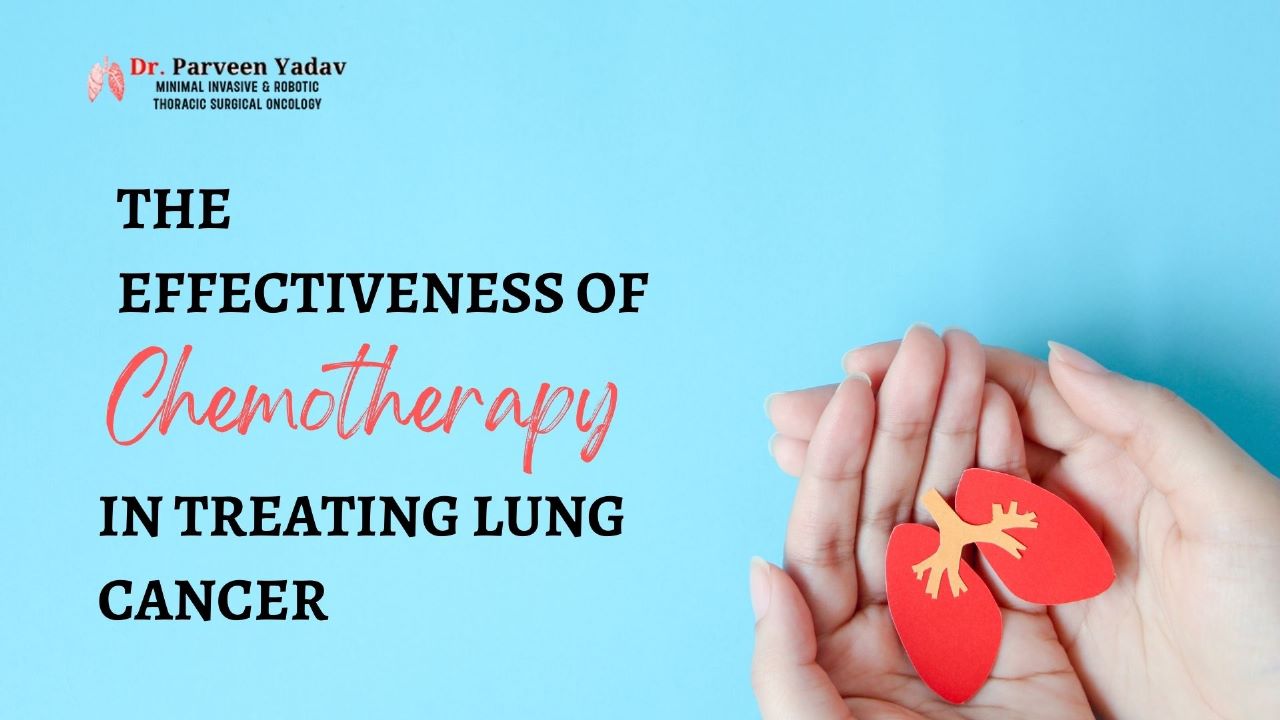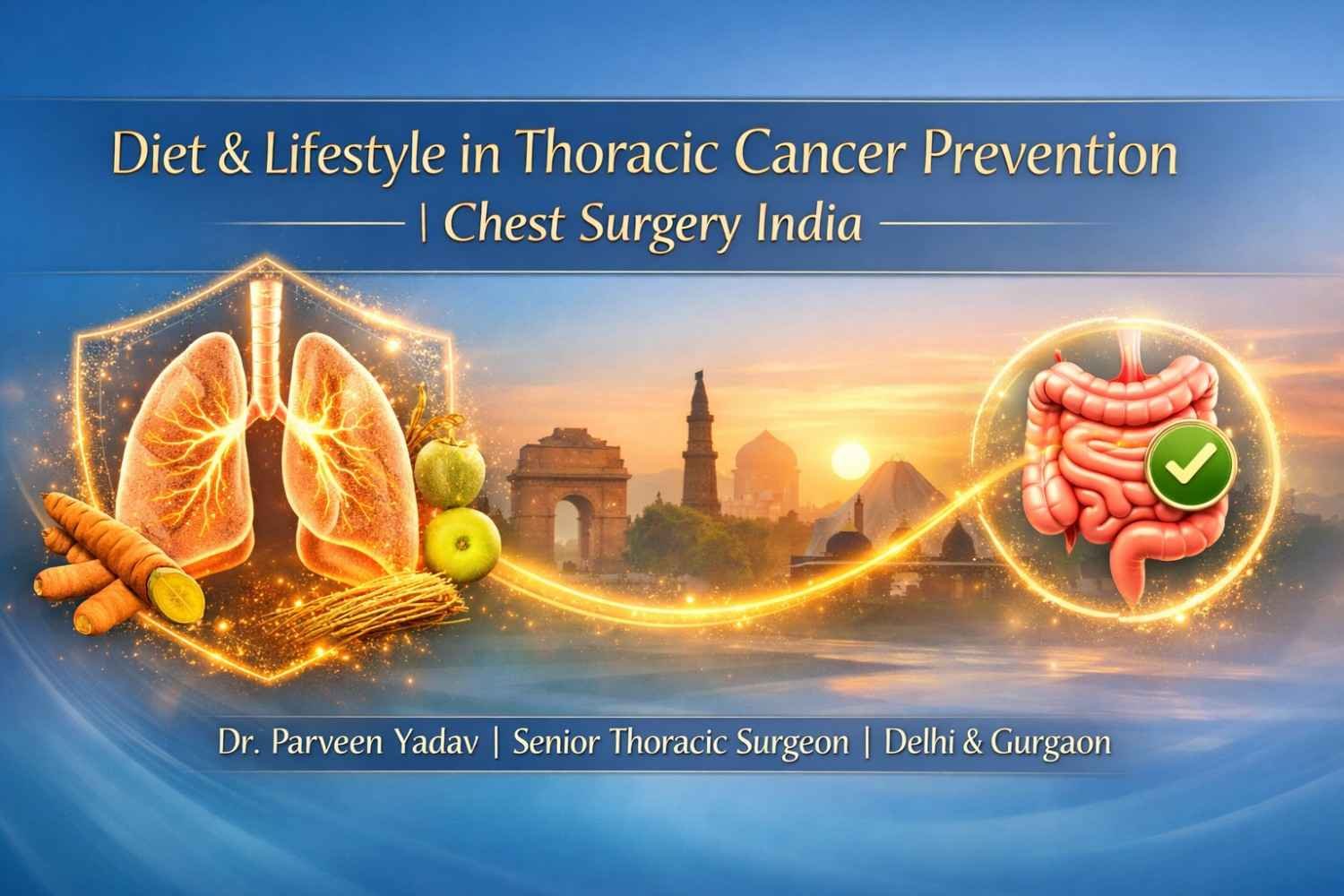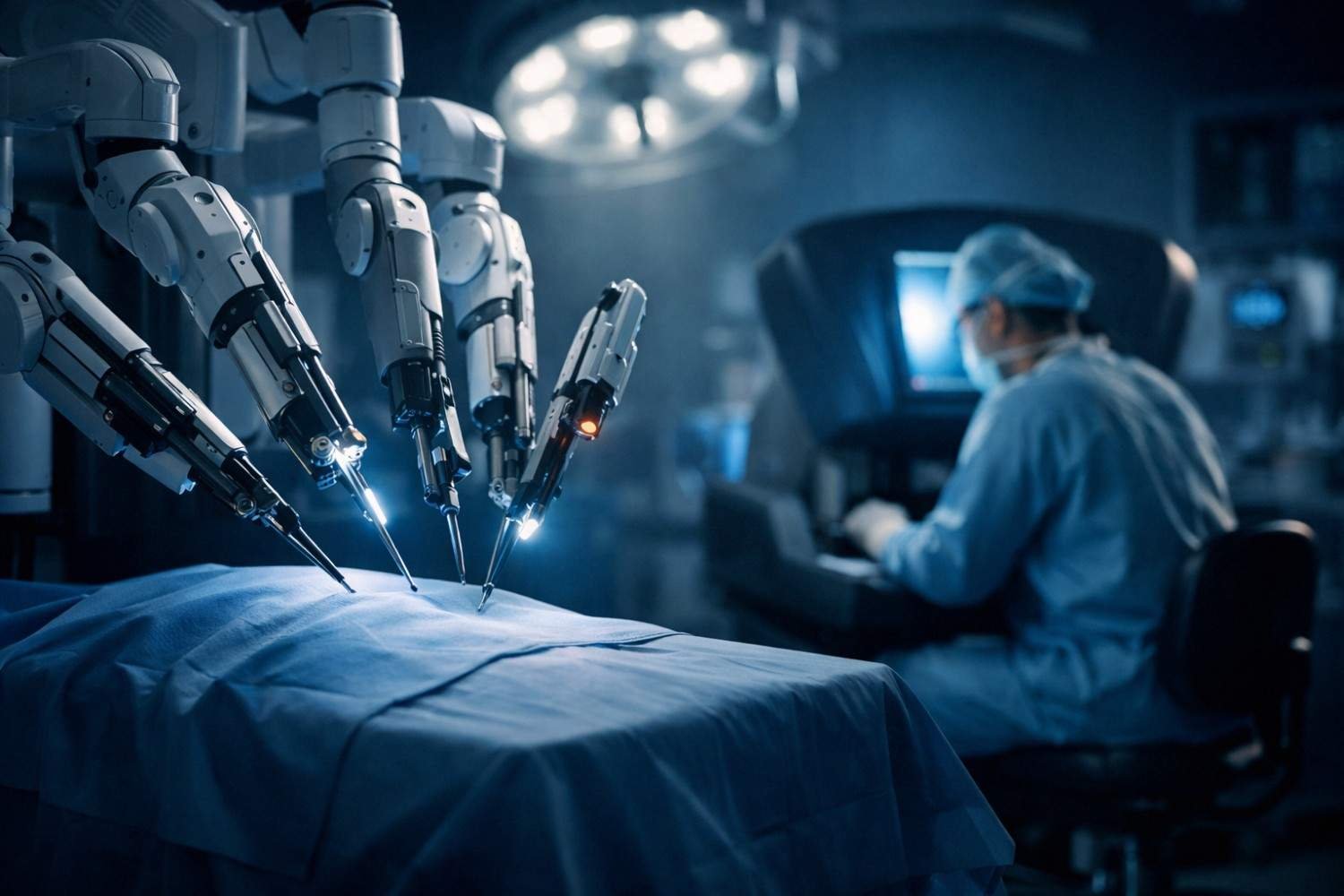

Lung cancer is a serious health complication with life-threatening consequences. Lung cancer symptoms are often ignored by patients, confusing them with trivial health conditions. However, it doesn’t take much time before the issue magnifies and turns extremely serious.
If you or anyone in your family have been experiencing symptoms like prolonged cough that doesn’t go away, difficulty in breathing, hoarseness in voice, wheezing breath, etc., make sure you consult the right doctor in your city. For instance, if you live in Delhi, look for the best lung cancer specialist in Gurgaon to diagnose and treat your health condition.
Once diagnosed, there are different ways of treating lung cancer, one of them being chemotherapy. Other common lung cancer treatment procedures include radiation therapy and surgery.
Before diving a little deeper into chemotherapy, let us briefly understand what lung cancer is.
What Is Lung Cancer?
Lung cancer is a type of cancer that starts in the lungs and can spread to other parts of the body. It typically occurs when cells in the lung tissue start to grow uncontrollably and form a tumor.
There are two main types of lung cancer: non-small cell lung cancer and small cell lung cancer.
Non-small cell lung cancer is the most common type, accounting for about 85% of cases, while small cell lung cancer is a more aggressive form that tends to grow and spread quickly. Lung cancer can cause symptoms such as a persistent cough, shortness of breath, chest pain, and coughing up blood. It is often diagnosed through imaging tests like CT scans and biopsies, and treatment options may include surgery, radiation therapy, chemotherapy, targeted therapy, and immunotherapy. Smoking is the leading cause of lung cancer, but other factors like exposure to radon gas, air pollution, and a family history of lung cancer can also increase the risk.
It is always advisable to seek medical help during the initial stages of lung cancer as it increases the success rate of the treatments that follow. As a Gurgaon resident, make sure you seek the best lung cancer treatment in Gurgaon to get rid of the unwanted health complication.
What Is Chemotherapy For Lung Cancer?
Chemotherapy is a type of cancer treatment that uses drugs to kill cancer cells or slow their growth. It is often used as a treatment for lung cancer, both as a primary treatment and in combination with other treatments like surgery or radiation therapy.
Chemotherapy drugs are usually given intravenously, which means they are injected into a vein, but they can also be given in pill form. The drugs circulate through the bloodstream and can reach cancer cells throughout the body. Because they target rapidly dividing cells, chemotherapy drugs can affect not only cancer cells but also healthy cells that divide rapidly, such as those in the hair follicles, the lining of the digestive tract, and the bone marrow.
The specific chemotherapy drugs used to treat lung cancer depend on the type and stage of cancer, as well as the patient's overall health. Some of the most common drugs for non-small cell lung cancer include cisplatin, carboplatin, paclitaxel, docetaxel, vinorelbine, and gemcitabine. For small-cell lung cancer, the most common drugs are etoposide and cisplatin or carboplatin.
Chemotherapy is usually given in cycles, with each cycle consisting of a period of treatment followed by a period of rest to allow the body to recover. Side effects of chemotherapy can include nausea, vomiting, fatigue, hair loss, increased risk of infection, and a decrease in the number of red and white blood cells and platelets. These side effects can often be managed with medication or changes in diet and lifestyle, most of which go away once treatment is finished.
How Effective Is Chemotherapy In Treating Lung Cancer?
The effectiveness of chemotherapy in treating lung cancer depends on several factors, including the type and stage of the cancer, the patient's overall health, and the specific chemotherapy drugs used.
For non-small cell lung cancer, chemotherapy is often used in combination with other treatments like surgery and radiation therapy. According to the American Cancer Society, chemotherapy can help shrink tumors before surgery or radiation, destroy any remaining cancer cells after surgery, and help control cancer that has spread to other parts of the body.
The effectiveness of chemotherapy for small cell lung cancer is also well established. Small-cell lung cancer is a fast-growing cancer that tends to respond well to chemotherapy. In fact, chemotherapy is often the primary treatment for small-cell lung cancer, even when it has not spread beyond the lung.
Overall, the effectiveness of chemotherapy for lung cancer varies depending on the individual case. Some patients may experience a complete or partial response to chemotherapy, meaning that the cancer shrinks or disappears, while others may not respond as well. In some cases, chemotherapy can help control the cancer and extend the patient's life, even if it doesn't cure the cancer.
While chemotherapy can be an effective treatment for lung cancer, it can also cause side effects, as mentioned in the previous answer. The decision to use chemotherapy as a treatment for lung cancer is typically made by a team of doctors and specialists. It is based on a thorough evaluation of the patient's condition and medical history.
The Final Word
Especially if lung cancer is more serious and is in the final stages, chemotherapy is a highly recommended treatment procedure. It allows oncologists to tackle the tumor effectively. Chemotherapy is often paired with surgery to get better results and increase the success rate of a treatment.
If you have been struggling with symptoms that hint toward a possible risk of lung cancer, do not delay a visit to the best lung cancer specialist in Delhi. Cancer specialists help you understand the risk of the disease and guide you every step of the way in receiving the right medical care. Even if you are not at a risk of lung cancer, make sure you lead a healthy life and adopt a healthy lifestyle to keep such issues at bay.

18+ Yrs Exp | 5,700+ Thoracic & Robotic Cancer Surgeries
Dr. Parveen Yadav is a Director and Senior Consultant in Thoracic and Surgical Oncology, specializing in minimally invasive and robotic lung and esophageal surgeries, with advanced training from AIIMS and Tata Memorial Hospital.
View Full Profile Pain After Thoracic Surgery: Tips for Smooth Recovery
Pain After Thoracic Surgery: Tips for Smooth Recovery
 Diet & Lifestyle for Thoracic Cancer Prevention | Dr. Parveen Yadav
Diet & Lifestyle for Thoracic Cancer Prevention | Dr. Parveen Yadav
 Robotic Thoracic Surgery: How Da Vinci Technology is Revolutionizing Chest Procedures
Robotic Thoracic Surgery: How Da Vinci Technology is Revolutionizing Chest Procedures
Struggling with pain after chest surgery? Dr. Parveen Yadav shares expert recovery tips, causes of shoulder pain, PTPS signs, and what your discharge sheet won't tell you.
Discover how diet, breathing exercises & daily habits help prevent and recover from thoracic cancer. Expert insights from Dr. Parveen Yadav, Chest Surgery India
Discover how Da Vinci robotic surgery is transforming chest procedures in Gurgaon. Less pain, faster recovery & expert care by a certified thoracic surgeon
Copyright 2026 © Dr .Parveen Yadav all rights reserved.
Proudly Scaled by Public Media Solution!